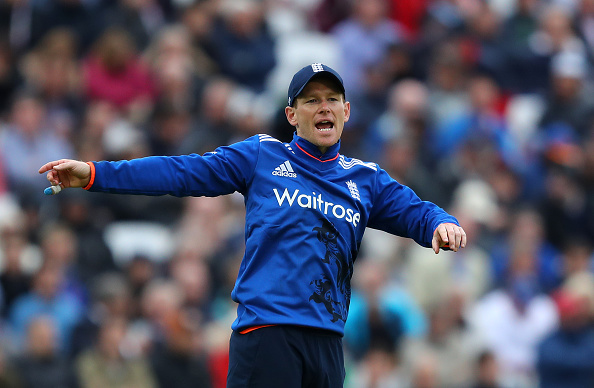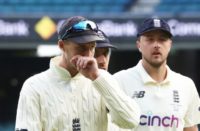The Champions Trophy next June will be England’s main white-ball focus for the medium term, but they could do with gaining victory in India first, if only to take the heat off Andrew Strauss, the selectors and the coaching team of Trevor Bayliss and Paul Farbrace.
The management team work across both England’s red and white-ball cricket. In the past, Test results have usually kept spirits buoyant while the one-day team has been caned. But with Alastair Cook’s team losing seven of their last 11 Tests – four of them in India before Christmas – it will be up to the white-ball side to salvage both some pride and some faith from a series in which the decision-making often descended into chaos.
As team director, Strauss has already come under pressure for allowing Eoin Morgan, England’s white-ball captain, and Alex Hales, to miss the Bangladesh leg without consequence, due to their own safety and security fears. He probably feels it was a nice adult way to deal with the situation, but human nature being what it is, I’m pretty sure most of the players who trusted their security officer’s judgment and went to Bangladesh don’t share his view, whatever their public utterances to the contrary. I know I could never again admire a captain who withdrew while his team, subject to the same pressures, ventured on without him.
What Strauss should have done is tell Morgan and Hales to have the winter off to consider their futures, handed the captaincy for this one-day series to Joe Root to see how he handled it with the Test job in the offing, and let Ben Duckett get some of the frustration out of his system by clobbering India’s spinners without men crowding around the bat.
Root, who was rightly rested for the Bangladesh one-dayers, has been Cook’s heir apparent for the Test captaincy since Ian Bell was dropped in 2015. Due to the central contract system, he gets few opportunities to captain his county Yorkshire. On the one occasion he did a few seasons ago, Middlesex chased over 400 to win, suggesting that he has much still to learn.
People forget now, but Strauss captained England’s one-day side many times before he was officially appointed Test captain. Cook ditto. In fact, it is about the only way cricketers on central contracts can learn about captaincy, which is presumably why Andy Flower has been appointed to run leadership programmes at Loughborough in an attempt to provide other sources of learning. Even before Cook’s wobble in India, this was a good opportunity to see how Root responded while in charge.
Although finalists in the last World T20 in India, England have lost 15 of their last 18 one-day internationals there (50-over matches). Following their nadir in the 2015 World Cup, this team under Morgan has made significant progress yet it still lies fifth in the 50-over rankings and sixth in the T20 ones. Consistency, demanded even by high-octane cricket, is still lacking, though they will get a masterclass in that from Virat Kohli should he carry over his sensational red ball form into the white.
Conditions in India, which completely bamboozled England’s Test team, have less effect on one-day games, though it will be interesting to see which players flourish and why. Adil Rashid was England’s leading wicket-taker in the Test series just gone, but despite his 23 wickets he never looked like bowling England into a winning position despite having large totals to play with.
With batsmen forced to go after him in one-day cricket, and with the bad ball often protected by boundary fielders, Rashid is more of a threat in the shorter format than the long. Taking middle-order wickets is where he can change the course of a game. Yet, he has never played white-ball cricket against India before so a stern challenge awaits.
However well, or badly it goes in India, it will not be an accurate indicator of how the team might fare in the Champions Trophy, to be held at Cardiff, Edgbaston and the Kia Oval. Obviously winning handsomely will boost confidence more than losing, but the skill sets required for making runs and preventing them, on surfaces as varied as Mumbai in January and Edgbaston in June, are very different.
Champions Trophy runner-up last time, when they lost to India in the final, England should be contenders again providing they can temper their ‘no fear cricket’ into something that incorporates a smidgen of risk assessment. Jos Buttler now has that element to his game and could become England’s Kohli, though you rarely see Kohli play fancy shots when a conventional one will do.
England’s bowlers should take note of Buttler and be more inventive, especially in India, though judging when to reveal your variations is almost as important as being able to bowl them. Jade Dernbach, once of England, had all the ammunition to thrive at international level except the nous of when and against whom to use his many slower balls. Had he possessed that, and a tad more control, he would have been one of England’s finest white-ball bowlers.
Ben Stokes is similar in many respects, though unlike Dernbach he appears keen to learn his lessons, which don’t come any harsher than when he last was in India with a white ball in hand. Then, with England on the cusp of winning their second World T20 Trophy, he was mugged by Carlos Brathwaite, who smashed him for four successive sixes to win the match.
With a fair wind, there is no reason why England should not win the Champions Trophy for the first time.
But winning in India over the next few weeks, where they will play three 50-over matches and three T20s, is a very different prospect. To do that, they will need to be nerveless, which is very different from being bold, and they will need to hold every catch that comes their way. Do that and they might just take the heat off the suits and the tracksuits and start 2017, as the Coca Cola jingle proclaimed, ‘in perfect harmony’.
This piece originally featured in The Cricket Paper, January 6 2017
Subscribe to the digital edition of The Cricket Paper here












